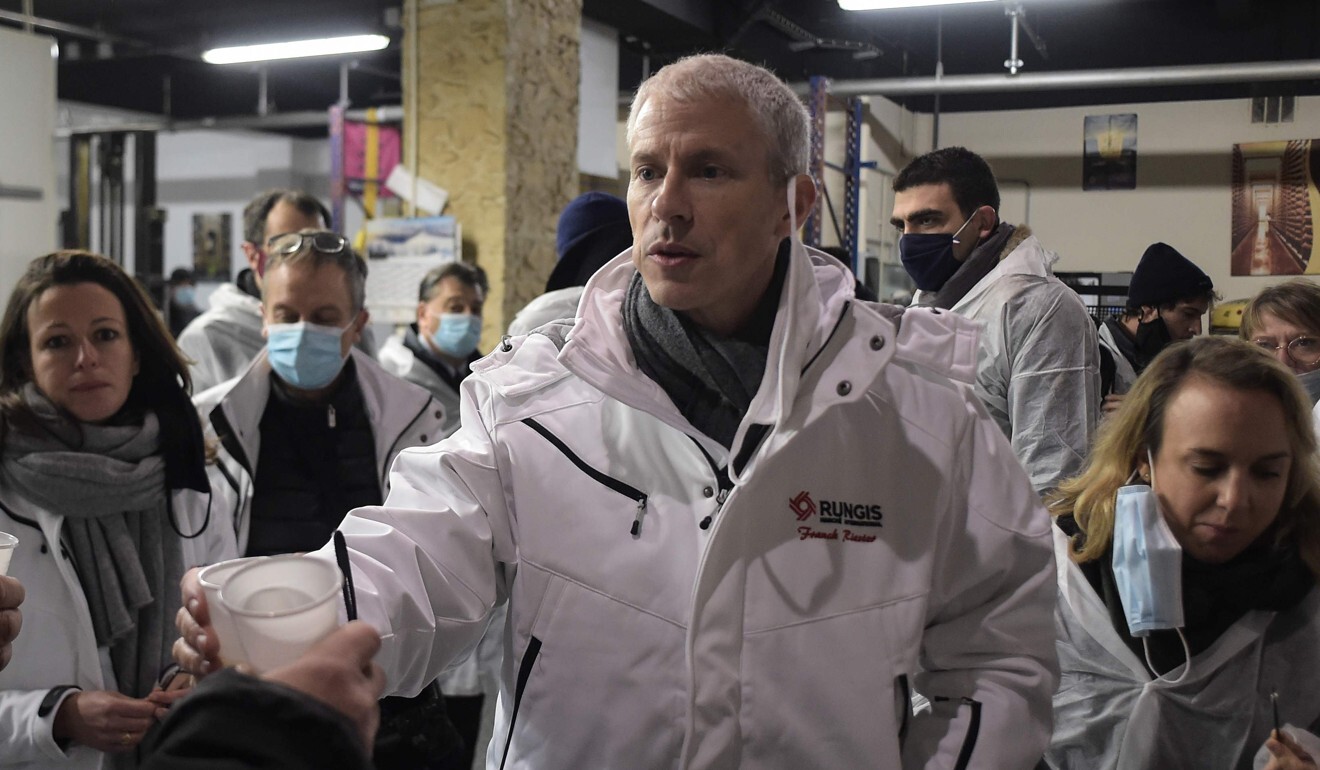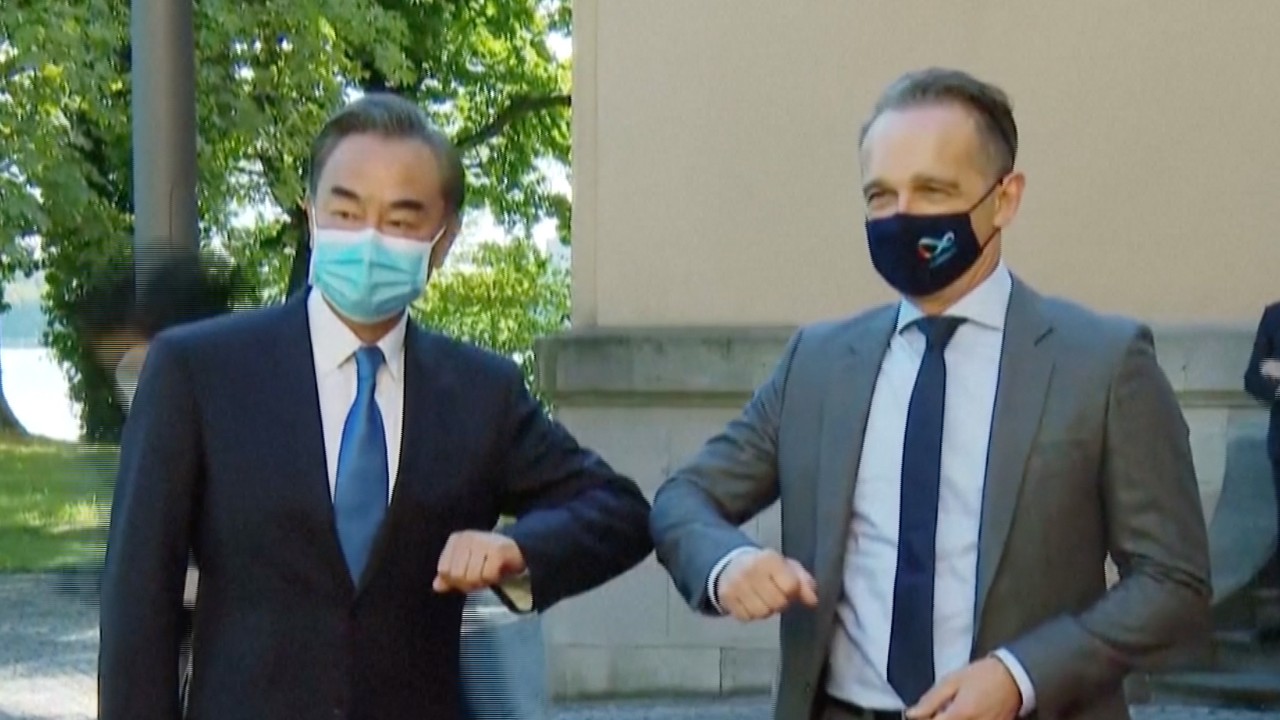
China premier Li Keqiang scrambles to shore up support for investment agreement with EU
- Premier Li calls prime ministers of Spain and the Netherlands, according to Xinhua, seeking ‘an early conclusion’ to the deal
- Move comes after French trade official says the agreement could founder over objections to China’s lack of commitment to end forced labour

Chinese Premier Li Keqiang has asked leaders of Spain and the Netherlands to back Beijing’s proposed investment deal with the European Union, after a high-level French official threatened to block it over forced-labour concerns.
The intensive diplomatic manoeuvring on Wednesday marked Beijing’s drive to secure the deal before Joe Biden is sworn in as US president in four weeks and seeks to coordinate China policy with Europe.
“China is willing to work together with the EU to push for an early conclusion of the investment agreement,” Li said to Dutch Prime Minister Mark Rutte, according to Chinese state media Xinhua.
In another call to Spanish Prime Minister Pedro Sanchez, Xinhua said, Li vowed to cooperate with the EU on the agreement, climate change and green development, adding: “China hopes that the EU will continue to provide a fair, open and non-discriminatory business environment for Chinese companies.”
Li made the calls hours after key French and Polish officials objected to the EU investment deal, respectively over China’s responsibilities toward labour rights as well as the EU’s need to coordinate with the US over China.
“We cannot facilitate investment in China if we do not commit to abolishing forced labour,” Franck Riester, the minister delegate in charge of trade in the French foreign ministry, said in an interview with Le Monde.

Riester suggested the deal could be blocked if Beijing would not agree to international covenants banning forced labour.
Referring to the International Labour Organization, Riester said: “With regard to the investment agreement which is being negotiated, we have a red line: The ratification of the fundamental conventions of the ILO.
“Many countries share our positions, such as Belgium, Luxembourg and the Netherlands. I also know that Germany is very attached to these questions.”
Riester said it would be unacceptable to boost investment in China without sufficient safeguards on human rights. While praising the deal as “a significant step towards rebalancing our investment relations with China”, he contended that trade deals should serve as a “lever to advance social issues, to fight against forced labour, in particular of the Uygurs”.
“We must move forward on all fronts simultaneously: investment, trade, openness to public procurement, sustainable development and of course human rights,” the French minister said. “We are very concerned about the situation in Hong Kong, Inner Mongolia, or that of the Uygurs in Xinjiang.”
Most EU decisions require support from both Germany and France, the bloc’s two leading members. Riester’s comments indicated the reservations of the French government, even though, according to diplomatic sources, Berlin is pressing to get the deal done.
Riester also confirmed that under terms of the deal – which diplomats said has reached the final stages – the EU would have to open up its energy market for Chinese companies.
Riester also said that Brussels and Beijing have not been able to agree on how to resolve disputes arising from the deal.

02:56
Germany presses China on Hong Kong security law, seeks access to Uygurs in Xinjiang
On the need for Beijing to commit to investor protection, Riester said there were concerns whether European companies entering the Chinese market through the new deal could be subject to “sudden nationalisation” by the Chinese government.
“This is one of our trade policy priorities: we need a robust dispute-settlement framework, and solid guarantees to ensure that China’s commitments in the agreement are respected,” he said.
Noah Barkin, an EU-China expert at the Rhodium Group consultancy, said that “the forced labour issue is a red line for several countries, but France is the first to say so publicly.
“It’s clear that China will have to move on this or the deal won’t happen,” Barkin added.
The Chinese embassy in France did not respond to requests for comments.
Polish Foreign Minister Zbigniew Rau had also weighed in on the deal, saying: “Europe should seek a fair, mutually beneficial comprehensive agreement on investment with China. We need more consultations and transparency bringing our transatlantic allies on board.”
The Biden-Harris administration would welcome early consultations with our European partners on our common concerns about China's economic practices. https://t.co/J4LVEZhEld
— Jake Sullivan (@jakejsullivan) December 22, 2020
Rau’s comments came after Jake Sullivan, US president-elect Joe Biden’s choice for national security adviser, took aim at the EU-China deal.
“The Biden-Harris administration would welcome early consultations with our European partners on our common concerns about China’s economic practices,” Sullivan wrote on Twitter.